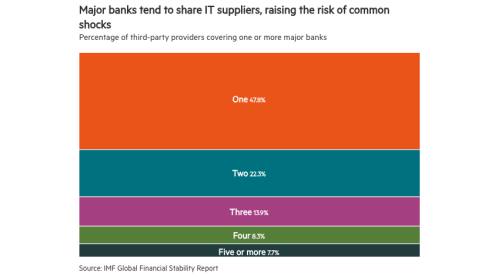The creditworthiness of Russia’s corporates and financial institutions is under increasing pressure as a result of the sanctions imposed on the country since its invasion of Ukraine.
As of March 8, $61.74bn from the $112bn of total outstanding debt by Russian corporates and financial institutions over the next 10 years is on the brink of investment grade territory of BBB, according to Dealogic.
Much of this debt is from energy companies, which accounts for $71.67bn of the total outstanding debt over the next 10 years, followed by industrial companies at $20bn and financial institutions at $8.6bn.
The major credit rating agencies have already begun downgrading Russian corporate debt to junk status.
S&P downgraded four Russian banks from BBB- to BB+ on March 1 – Raiffeisenbank AO, UniCredit bank AO, Gazprombank JSC and Alfa-Bank JSC (including its holding company, ABH Financial).
Moody’s could soon follow suit after placing the ratings of 16 Russian financial institutions and 51 Russian non-financial corporates under review for downgrade.
The Russian sovereign has already been downgraded twice by S&P since the invasion of Ukraine, from BBB- to BB+ on February 25, followed by a further downgrade to CCC- on March 3, citing an “increasing risk of default”. Meanwhile, Fitch downgraded Russia from BBB to B on March 2.
“In our view, the escalation of Russia-Ukraine tensions, Russian operations in Ukraine and widening of sanctions against Russia could lead to conditions that eventually destabilise Russia's economy and financial system,” said S&P in a statement. “The US and EU have announced sanctions that prohibit dealings with several banks and their subsidiaries, and introduced restrictions for working with several others, including restrictions of operations with the Russian central bank.”











